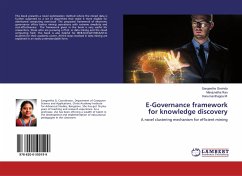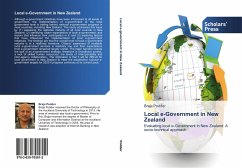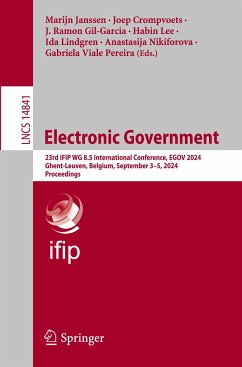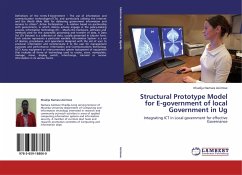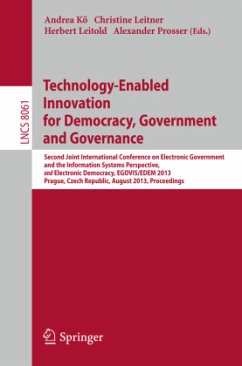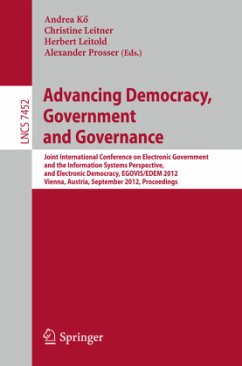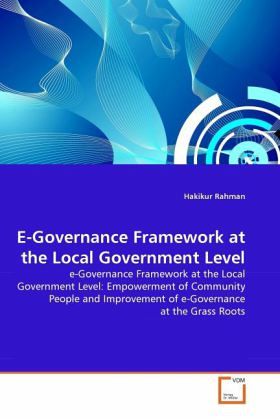
E-Governance Framework at the Local Government Level
e-Governance Framework at the Local Government Level: Empowerment of Community People and Improvement of e-Governance at the Grass Roots
Versandkostenfrei!
Versandfertig in 6-10 Tagen
45,99 €
inkl. MwSt.

PAYBACK Punkte
23 °P sammeln!
E-government theories are prevailing in various formats and concepts around the globe, but not with examples in terms of developing a comprehensive e-governance framework at the local government tier. Despite the dynamic characteristics of e-governance that mainly depend on numerous parameters across the society, culture, economy, politics and geographies, researchers are thriving towards achieving a concrete outcome on e-government implementations. Many nations have taken ICTs as their thrust sector for many years, involving patronization from the highest authorities of their countries. Globa...
E-government theories are prevailing in various formats and concepts around the globe, but not with examples in terms of developing a comprehensive e-governance framework at the local government tier. Despite the dynamic characteristics of e-governance that mainly depend on numerous parameters across the society, culture, economy, politics and geographies, researchers are thriving towards achieving a concrete outcome on e-government implementations. Many nations have taken ICTs as their thrust sector for many years, involving patronization from the highest authorities of their countries. Global organizations and research institutes have been conducting researches exploring aspects of promoting e-government theories and practices around the globe. But, surprisingly till date most of the e-government programs or e-government researches could not be taken as granted, and foremost many of them could not come out as a major accomplishment. This research likes to carry out a comprehensive analysis on various theories built around the e-governance concept, focusing penetration of e-government system at the grass roots by empowering the people at large through community participation.



